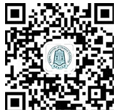报告题目:Statistical Monitoring of Manufacturing Processes and Humans
报告人:Prof. Manabu Kano (Kyoto University, Japan)
时间:2016年11月2日15:00-16:30
地点:逸夫会议中心会议室
报告人简介:
Dr. Manabu Kano is currently a professor of Department of Systems Science, Kyoto University. He got bachelor, master, and doctor degrees in 1992, 1994, and 1999 from the Department of Chemical Engineering, Kyoto University. Since he took a position of instructor in 1994, he has worked for Kyoto University. His research interest has focused on process data analysis and process control. He has conducted researches in collaboration with various industries such as semiconductor, chemical, steel, and pharmaceutical. Dr. Kano has received many awards: Best Paper Award and Technology Award from The Society of Instrument and Control Engineers; Instrumentation, Control and System Engineering Research Award from The Iron and Steel Institute of Japan; Outstanding Paper Award from The Society of Chemical Engineers, Japan. Dr. Kano is a subject editor for Journal of Process Control and has taken part in many international conferences as an IPC member.
报告内容:
In the process industry, virtual sensing technology, which is known as soft-sensor or virtual metrology, has played an important role in monitoring product qualities that is difficult to measure in real time. In addition, multivariate statistical process control (MSPC) has played an important role in monitoring manufacturing processes, i.e., fault detection and identification. In this talk, I introduce Just-In-Time (JIT) modeling, which is a kind of adaptive virtual sensing technology and can prevent deterioration in the estimation performance even when process characteristics change with time. Locally weighted partial least squares (LW-PLS), which is a kind of JIT modeling methods, has successful industrial applications in the semiconductor manufacturing industry, the chemical industry, and the pharmaceutical industry. Several extensions of the LW-PLS algorithm and also remaining problems are illustrated. In addition, I would like to introduce our recent research aiming at improving the quality of life (QoL) of patients by using wearable sensors and process monitoring techniques; for example, epileptic seizure prediction and driver’s drowsiness detection. We are developing Human Systems Engineering by using Process Systems Engineering. There are a lot of challenging problems that I believe we can contribute to solve.
化学工程学院 任钟旗教授邀请

